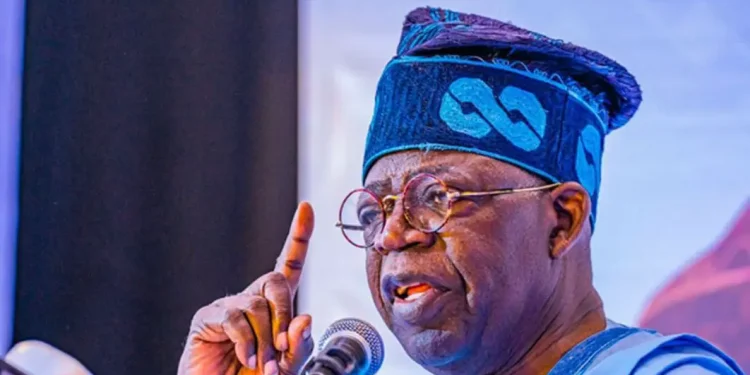Nigeria is embroiled in a deepening political crisis following President Bola Tinubu’s declaration of a state of emergency in the oil-rich Rivers State. The move, which saw the suspension of Governor Siminalayi Fubara, his deputy, and all state lawmakers for six months, has ignited fierce debate over its legality and implications for democracy.
Security Concerns and Political Unrest
In a nationwide broadcast on Tuesday, Tinubu justified the drastic measure by citing “disturbing security reports detailing incidents of vandalisation of pipelines by some militants without the governor taking any action to curtail them.” The president also insisted he could not allow the “grave situation” to persist.
The decision follows a significant blast on the Trans-Niger Pipeline, one of Nigeria’s most crucial crude oil channels. The pipeline, which facilitates the transport of oil worth approximately $14 million (£11 million) per day, has historically been targeted by criminal gangs and militants, leading to disruptions in production and exports.
Yet, the crisis in Rivers State extends beyond security concerns. The region has been gripped by an intense political standoff, exacerbated by factional disputes within the opposition People’s Democratic Party (PDP). As the PDP’s internal turmoil continues, its members in Rivers have been at odds, with lawmakers even threatening to impeach Governor Fubara and his deputy.
Tinubu pointed to these tensions as further justification for the emergency rule, claiming that political actors in the state have been unable to work together effectively. He accused Fubara’s allies of making incendiary statements and failing to distance themselves from threats of violence, leaving the state at a “standstill.”
Opposition and Legal Backlash
Despite President Tinubu’s justification, legal experts and opposition leaders have swiftly condemned the move, questioning its constitutional validity.
The Nigerian Bar Association (NBA) further labelled the president’s action “unconstitutional,” arguing that removing an elected governor, deputy, or legislature in such a manner violates democratic principles.
The PDP outrightly rejected the decision, framing it as an attempt at “state capture.” In a strongly worded statement, the party declared, “It is the climax of a well-oiled plot to forcefully take over Rivers State.” The party accused Tinubu of trying to transform Nigeria into a one-party state under his All Progressives Congress (APC).
Former presidential candidate Peter Obi of the Labour Party also denounced the move as “reckless” in a post on X (formerly Twitter), adding to the chorus of dissent.
Governor Fubara’s Response
Governor Fubara, whose position has been effectively nullified for the duration of the emergency rule, responded with measured defiance. Acknowledging the political turmoil, he maintained that governance in the state had continued unabated.
“Rivers State is safe, secure, and peaceful under our watch,” he said, further countering the narrative of instability used to justify his suspension.
A Precedent in Nigerian Politics
This is not the first time a Nigerian president has declared a state of emergency. Past administrations have resorted to such measures to combat insurgency and unrest. However, critics argue that President Tinubu’s decision differs in motive, appearing less about security and more about political control.
While Rivers State now under federal oversight, the coming months will test Nigeria’s democratic institutions and the balance of power between the presidency and opposition-controlled states. The legal and political battles that follow could shape the nation’s governance for years to come.



